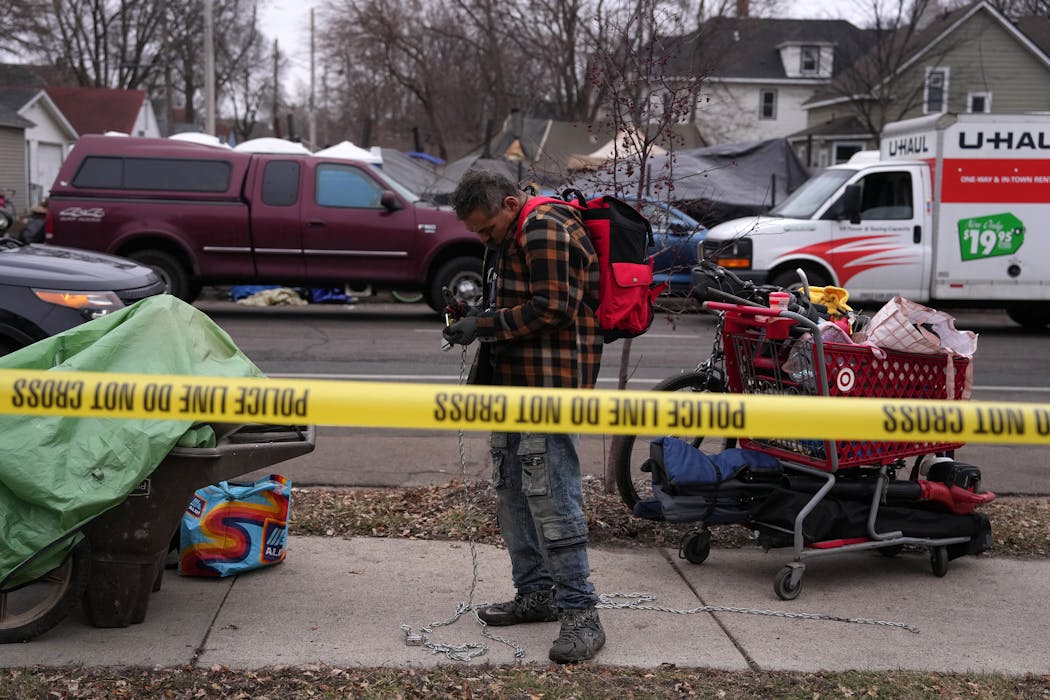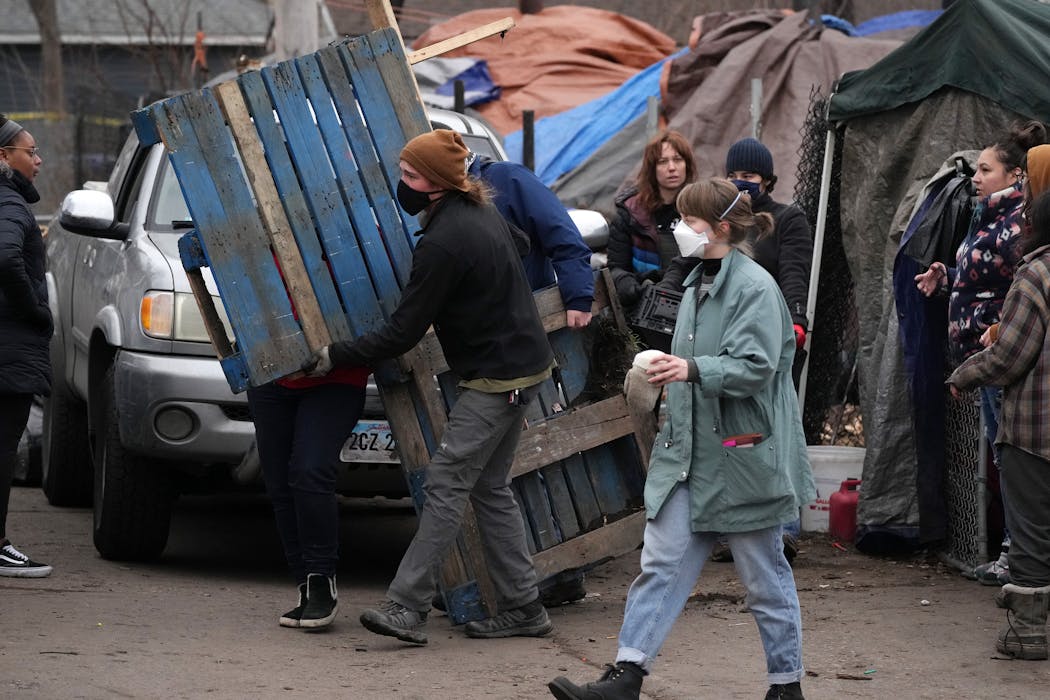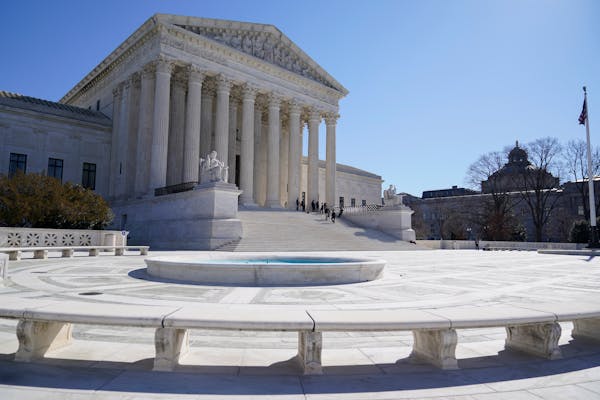The city of Minneapolis closed a homeless encampment Tuesday morning that formed after nearby Camp Nenookaasi was cleared in early January.
The city estimates that fewer than 25 people were living at the encampment overnight, on city land at E. 26th Street and 14th Avenue S., said City Operations Officer Margaret Anderson Kelliher. The camp's organizer disputed that figure, saying the number of residents is far larger.
"Large encampments are not dignified housing," Anderson Kelliher said at a news conference on Tuesday. "We have a responsibility to make sure people are offered services that are available through the city, county and state."
The city cited health and safety issues, including a recent outbreak of norovirus within the camp and a shooting, as reasons for the closure.
On Monday, one person was shot outside the encampment and left with noncritical injuries, said Public Safety Commissioner Todd Barnette. The person was hospitalized and no arrests have been made, Barnette said.
The original Camp Nenookaasi, which was located three blocks north, became the city's largest encampment. With a dedicated leadership team, the camp had a measure of order though it was still plagued by safety problems.
Residents of the camp were provided sanitation and trash pickup to relieve pressure on surrounding residents, Anderson Kelliher said.
As of 11 a.m. on Tuesday, three people had left the encampment, she said. There have been 80-90 beds available in partner shelters every night since the start of January. Partner shelters include the Harbor Light Center, Agate Housing and Services and Avivo Minneapolis. As of 3:30 p.m., there were seven overnight shelter beds remaining for women and 11 remaining beds for men, according to Adult Shelter Connect.
Temporary shelters are not seen as steps toward housing, camp organizer Christin Crabtree said, but as waiting rooms until morning that come with safety problems of their own.
"Most of our residents will not go because they are unsafe," Crabtree said. "They feel safer together on the street."
Camp residents want to see more notice, better data collection and for encampments to be treated with a public health rather than regulatory response, Crabtree said.
"Many residents are on waitlists for housing; it's not like they're not trying," Crabtree said. "These evictions only compound the challenges they face."

Want to share info with the Star Tribune? How to do it securely

'Safe recovery sites' would offer syringes, naloxone and more to people using drugs. The plan could be in peril.
New Minnesota GOP leaders seek peace with party's anti-establishment wing

Who is Republican Lisa Demuth, Minnesota's first House speaker of color?




